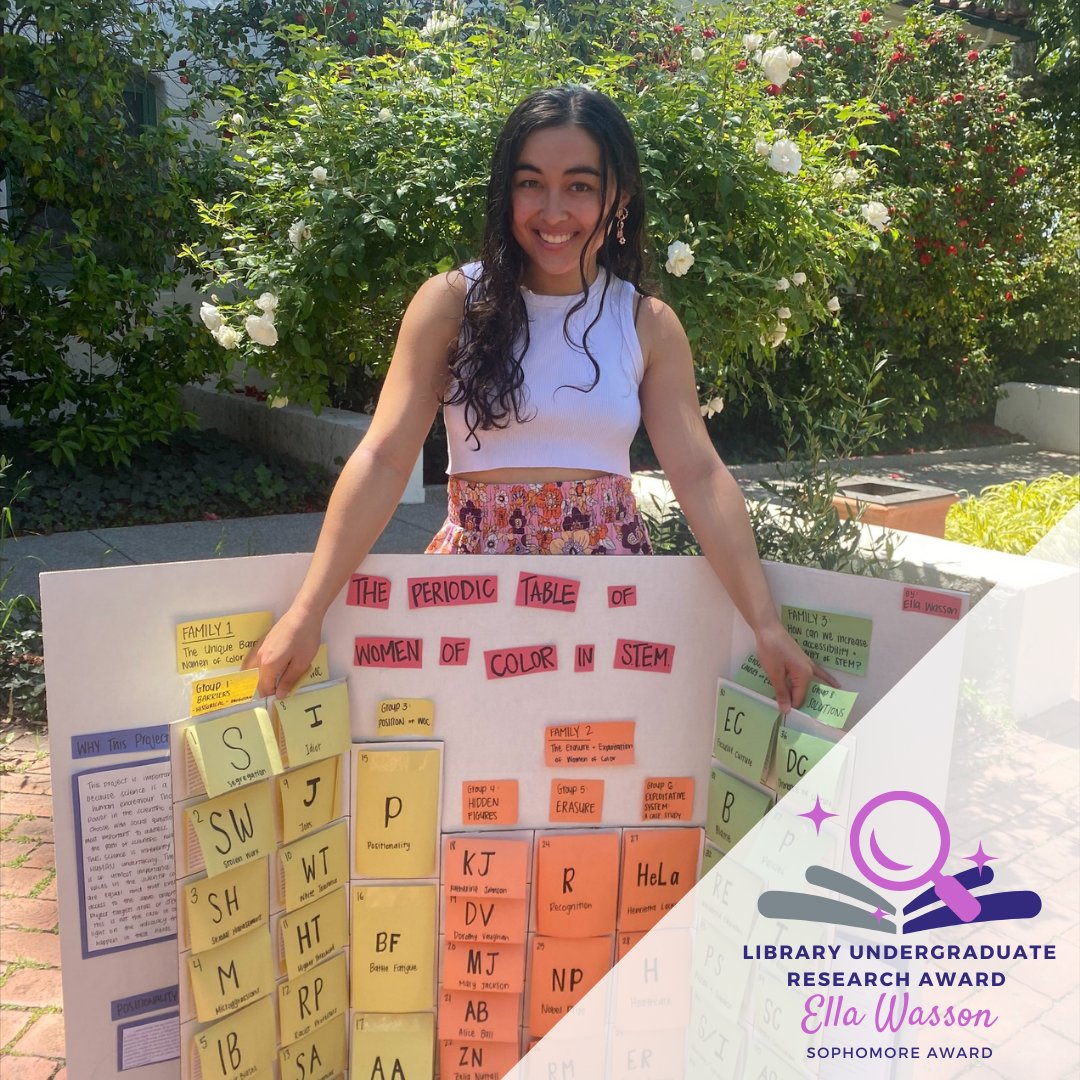Alexandra Rivasplata ’22 and Ella Wasson ’24 each received a Library Undergraduate Research Award (LURA) from The Claremont Colleges Library, awarded annually to 5C students who demonstrate exemplary research and scholarship, including remarkable skill and creativity in the use of library and information resources. The library awards a total of five LURAs, one each to a student from every class year across all five of the undergraduate colleges, and one for a group research project.

Rivasplata, an economics and organizational studies dual major, received the Senior LURA for her senior thesis, which investigated the decline in the number of women’s colleges while exploring the lack of quantitative studies and data on the positive impact women’s colleges have had on students and alumnae. Professor of Economics Roberto Pedace, who served as Rivasplata’s academic advisor for most of her Scripps career, says her work is “one of the most innovative and thought-provoking theses I have seen in the last 10 years.”
“When I was deciding on my thesis topic, I knew I wanted to explore a subject important to me and which I could personally relate to,” Rivasplata says, adding that she was inspired to investigate women’s higher education because of her time at Scripps. “Throughout the years, I have often found myself defending my choice to attend a women’s college. Even though it was easy for me to give anecdotal examples of boosts in self-confidence from a supportive environment, relating this conversation to quantitative data was a hole I wanted to fill.”
To do so, Rivasplata constructed a completely original dataset on women’s colleges in the United States—the largest existing dataset on the topic. She then performed a logistic regression on the data in the set and analyzed variables related to the survival of women’s colleges. She found that women’s colleges founded in metropolitan areas had a seven percent better chance of remaining open, rather than closing or turning into a coeducational institution. Similarly, colleges founded during the Progressive Era, a period of intense social and political reform that lasted from the 1880s through the 1920s, had a 15 percent better chance of survival—particularly colleges founded in the 1880s, at the beginning of the era.
However, Rivasplata didn’t just run the numbers and call it a day. She also examined three individual case studies, Judson College, Vassar College, and Wellesley College—one women’s college that closed, one that turned coeducational, and one that has remained a women’s college—for additional factors that could contribute to an institution’s survival or longevity. These variables included endowment, enrollment, retention, alumnae success, attitudes toward LGBTQ+ students, religious affiliation, proximity to more “traditional” institutions, and societal perception of women’s colleges during the 1960s and 1970s, a period when many women’s colleges became coeducational. These variables wouldn’t have become apparent without a deep dive into each college’s history.
“Writing a senior thesis is a potent endeavor in itself,” Rivasplata writes in her abstract. “However, crafting a senior thesis that required the creation of an original dataset with an expansive historical background section was both the most exigent, yet rewarding scholarship of my life.”

Wasson, a biology major, earned the Sophomore LURA for her project The Periodic Table of Women of Color in STEM, focusing on the historic erasure of and ongoing barriers to women of color in science, technology, engineering, and mathematics, as well as exploring methods of increasing accessibility and inclusivity in these fields. Wasson conducted this research as her final project for Assistant Professor of Spanish, Latin American, and Caribbean Literatures and Cultures Gabriela Bacsán’s Core III course, Resistance and Resilience, which centers the experiences of women of color as they challenge oppressive systems.
“I decided to research this topic because, as a woman of color in STEM, I feel it is extremely important for me to critically analyze the spaces I am trying to enter and the systems I will be interacting with,” Wasson says. “I wanted to contextualize my own experiences and seek ways to expand the inclusivity of STEM for myself, my peers, and future generations of women of color.”
Bacsán, who served as the faculty advisor for Wasson’s project, emphasizes the relevance of this research to ongoing discussions about representation and equity. “Importantly, Ella challenges the oppression lens that frames women of color as passive objects by centering the experiences and voices of women of color who have made significant contributions to STEM fields,” she says. “Simply put, Ella’s research is outstanding and makes a timely contribution to conversations regarding the underrepresentation of women of color in STEM fields.”
Wasson says that earning a LURA for her research is “incredibly validating, not only of the work I put into this project, but also the experiences I centered on. Receiving this award is an acknowledgement of the issues in STEM culture, a recognition of the many female scientists of color whose accomplishments have been erased, and a platform through which possible solutions can be explored.”
“Winning the Library Undergraduate Research Award means so much to me for so many reasons,” adds Rivasplata. “It reemphasizes how important women’s education is and makes me feel that the work I have done is contributing to the exposure of women’s college educational benefits. Writing my senior thesis was the culmination of my educational experience, and I am honored it was recognized in this manner.”

